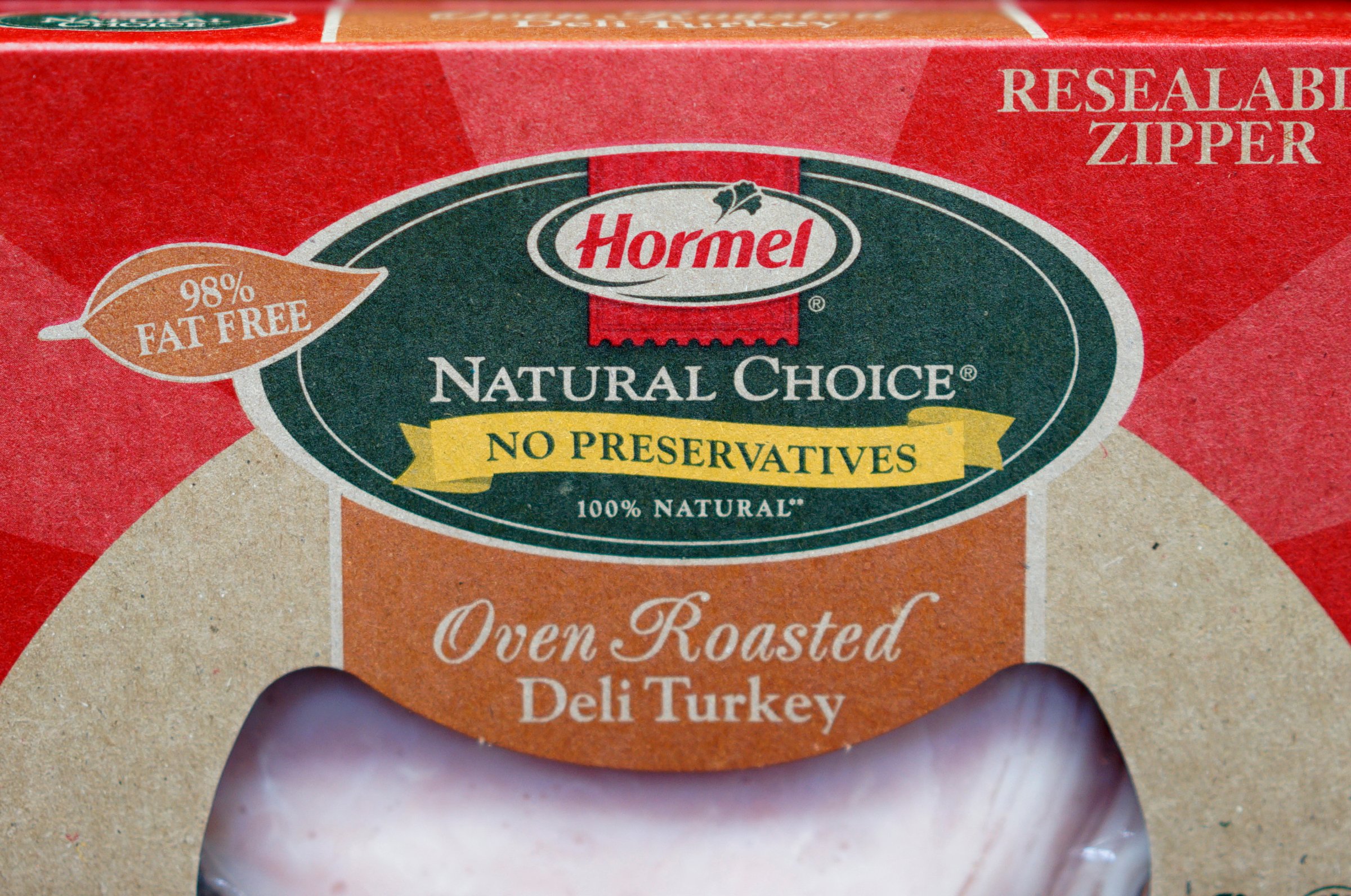
Hormel Foods is paying $775 million to buy organic processed meats maker Applegate Farms, the latest deal by a food giant for a smaller rival in the grocery aisle.
“A growing number of consumers are choosing natural and organic products,” said Hormel Foods Chief Executive Jeffrey Ettinger.
The deal will add Applegate’s deli meats, frozen burgers and dinner sausages to Hormel’s [fortune-stock symbol=”HRL”] portfolio of brands, which already includes Spam, Skippy peanut butter and the company’s namesake meats. The acquisition, which is expected to lift future profits, won’t add too much to Hormel’s sales. Applegate’s annual sales are expected to reach $340 million in 2015, a sliver of the roughly $9.3 billion Hormel records annually.
But the acquisition of Applegate is important for two key reasons. It is the latest deal by a “Big Food” maker for a smaller player. Smaller food makers have reported sharp sales growth as grocery shoppers at times turn away from legacy, established brands. Recent deals have included Hershey’s [fortune-stock symbol=”HSY”] acquisition of beef jerky maker Krave, Post Holdings’ [fortune-stock symbol=”POST”] deal for MOM brands, and Hormel’s own $450 million deal last year for Muscle Milk maker CytoSports.
Food companies are spending big on newer brands to lure consumers that want food they consider to be healthier. Applegate plays into the feel-good attitude that has been pervasive in the category. For example, Applegate says it produces meats that are “raised humanely without antibiotics and hormones.” The company’s webpage features an interview with CEO Stephen McDonnell talking about how he and other consumers want meats that don’t contain bad ingredients.
And like the Hershey deal for Krave, Hormel’s acquisition of Applegate is another big bet on protein. Industry analysts like NPD Group have flagged rising interest in protein, with studies showing nearly half of primary grocery shoppers have purchased protein-enriched foods and many are willing to pay more for those products.
Applegate will operate as a standalone subsidiary after the transaction is completed. The company has 100 employees, located primarily in Bridgewater, N.J.
More Must-Reads from TIME
- Donald Trump Is TIME's 2024 Person of the Year
- Why We Chose Trump as Person of the Year
- Is Intermittent Fasting Good or Bad for You?
- The 100 Must-Read Books of 2024
- The 20 Best Christmas TV Episodes
- Column: If Optimism Feels Ridiculous Now, Try Hope
- The Future of Climate Action Is Trade Policy
- Merle Bombardieri Is Helping People Make the Baby Decision
Contact us at letters@time.com